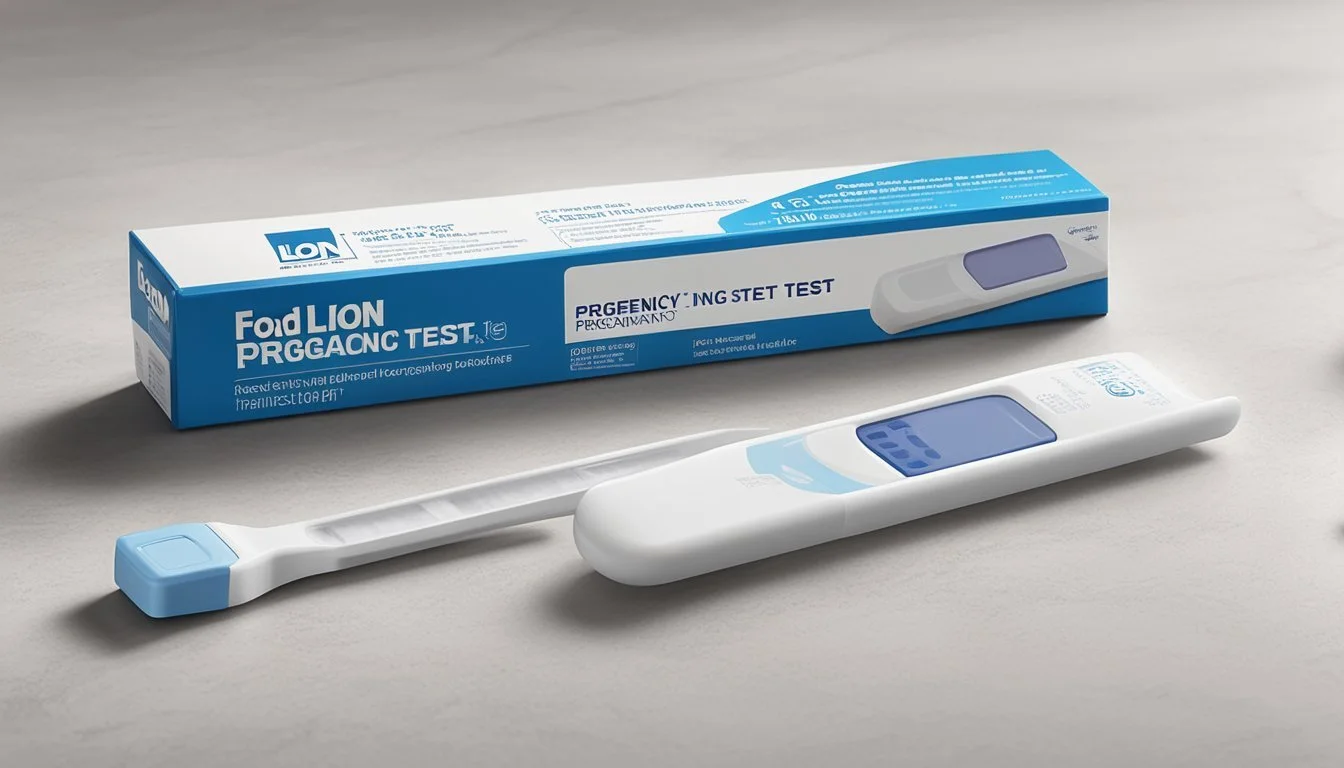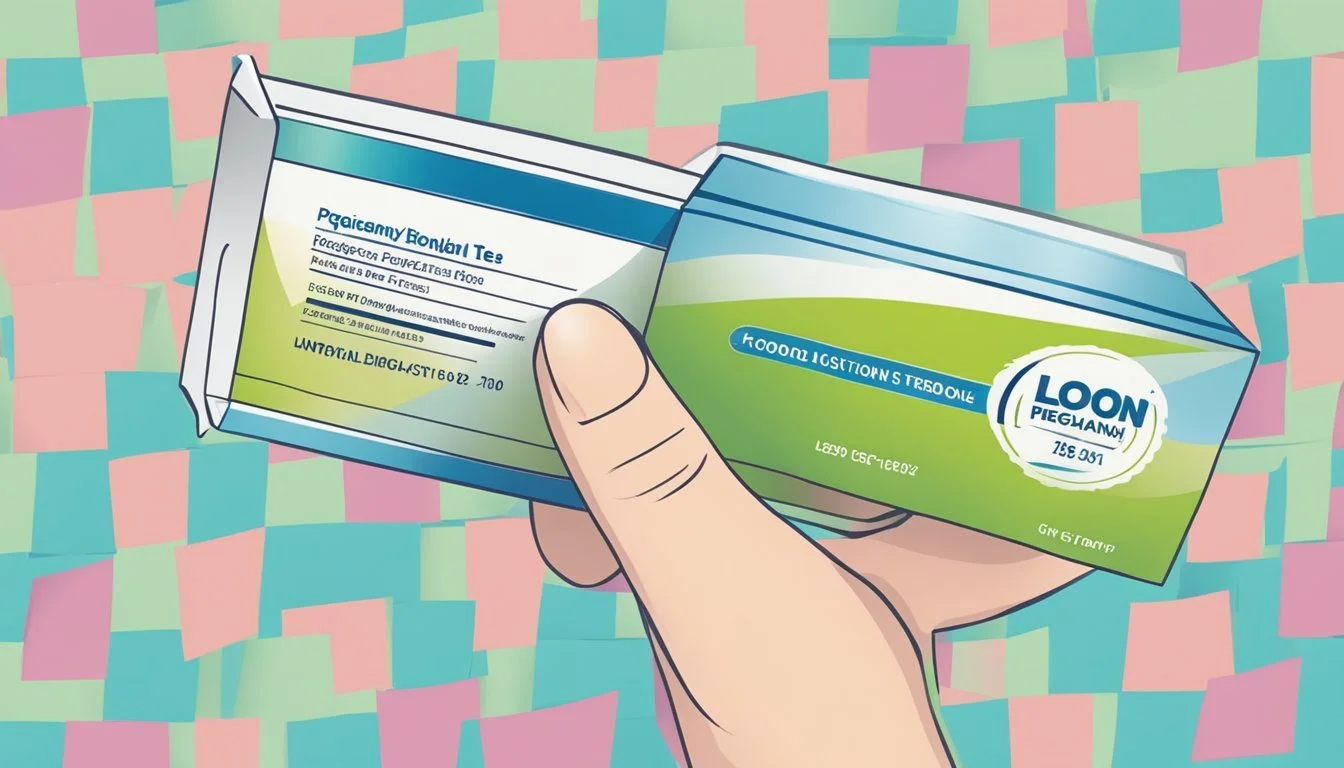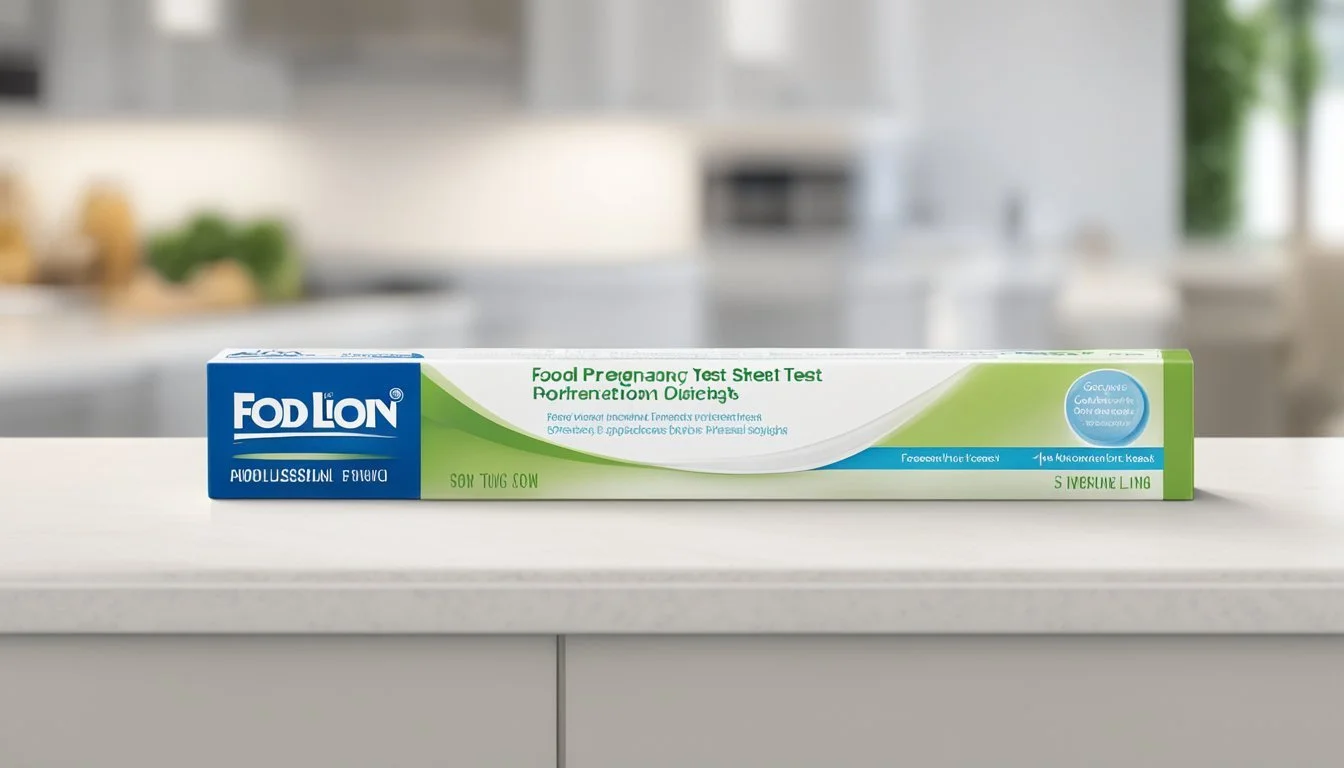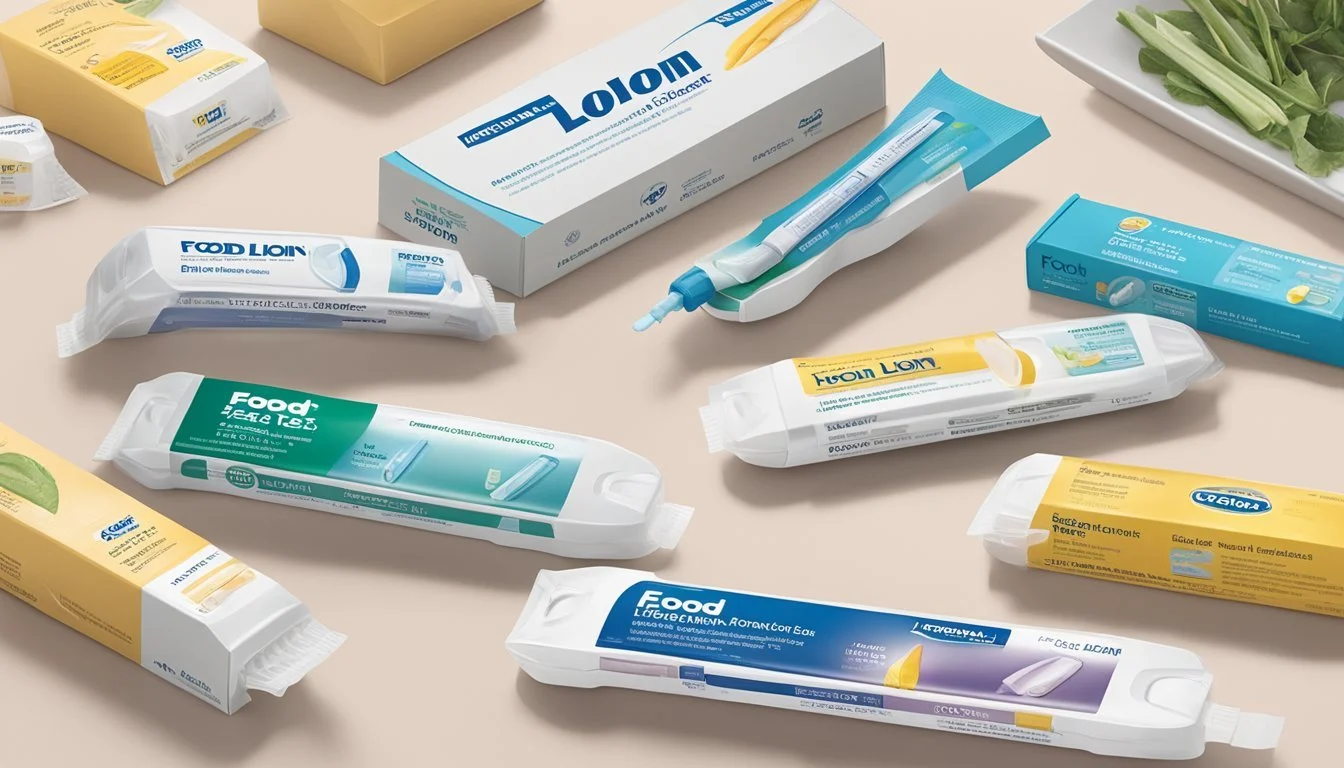Food Lion Pregnancy Test
Affordable and Reliable Option for Early Detection
Food Lion offers affordable and reliable pregnancy tests for those seeking to confirm a potential pregnancy. These tests are designed to provide accurate results quickly and easily, making them a popular choice for many customers.
Food Lion pregnancy tests boast over 99% accuracy from the day of the expected period, giving users confidence in their results. The tests are straightforward to use, typically involving a simple one-step process where the user holds the absorbent tip in their urine stream for a few seconds.
Convenience is a key feature of Food Lion pregnancy tests. They are readily available in stores, allowing customers to purchase them discreetly alongside their regular groceries. With clear instructions and fast results, these tests offer a stress-free option for those needing to determine their pregnancy status.
Understanding Pregnancy Tests
Pregnancy tests are essential tools for detecting pregnancy early and accurately. They measure the presence of human chorionic gonadotropin (hCG), a hormone produced during pregnancy.
Types of Pregnancy Tests
Two main types of pregnancy tests exist: urine tests and blood tests. Urine tests are widely available over-the-counter and can be performed at home. They come in various formats, including stick tests, strip tests, and digital tests.
Blood tests are conducted in medical settings and offer higher sensitivity. They can detect pregnancy earlier than urine tests, typically 7-10 days after ovulation. Blood tests are further divided into qualitative tests (detecting the presence of hCG) and quantitative tests (measuring hCG levels).
How Pregnancy Tests Work
Pregnancy tests function by detecting hCG in urine or blood. In urine tests, the sample is applied to a test strip containing antibodies that react with hCG. A positive result is indicated by a line, plus sign, or digital readout.
Blood tests use laboratory techniques to identify hCG. Qualitative tests provide a simple yes/no result, while quantitative tests measure the exact amount of hCG. This information can be useful for tracking pregnancy progress or identifying potential complications.
Accuracy of Pregnancy Tests
The accuracy of pregnancy tests varies depending on the type and timing of the test. Home urine tests are generally 97-99% accurate when used correctly and at the right time.
Factors affecting accuracy include:
Timing: Tests are most reliable when taken after a missed period
Test sensitivity: Different brands detect varying hCG levels
User error: Incorrect usage can lead to false results
Blood tests are more accurate and can detect pregnancy earlier. However, the "hook effect" can occur in rare cases, where extremely high hCG levels paradoxically result in a false negative.
For best results, follow instructions carefully and consult a healthcare provider if uncertain about test results.
When to Take a Pregnancy Test
Timing is crucial when taking a pregnancy test for accurate results. The best time depends on several factors, including hormone levels and your menstrual cycle.
Best Time of Day for Testing
First thing in the morning is ideal for taking a pregnancy test. The first morning urine contains the highest concentration of human chorionic gonadotropin (hCG), the pregnancy hormone. This increases the chances of detecting pregnancy early.
Avoid drinking excessive fluids before testing, as this can dilute urine and potentially lead to a false negative result. If testing later in the day, try to hold your urine for at least 4 hours before taking the test.
Some modern tests claim to work any time of day, but morning testing remains the most reliable option.
Impact of Missed Period
A missed period is often the first sign of pregnancy. For women with regular cycles, testing on the first day of a missed period typically provides accurate results.
Those with irregular cycles may need to wait longer or test multiple times. Count from the first day of your last period to determine when your next period is due.
If the test is negative but your period doesn't arrive, wait a few days and test again. Some women may not produce detectable levels of hCG until after their missed period.
Influence of Hormone Levels
Pregnancy tests detect hCG in urine. This hormone starts to appear in the body about 6-12 days after conception and doubles every 48-72 hours.
Early detection tests can identify pregnancy up to 6 days before a missed period. However, testing this early may lead to false negatives if hCG levels are still low.
For most accurate results, wait until at least the first day of your missed period. This allows time for hCG to build up to detectable levels.
Some medical conditions or medications can affect hCG levels. Consult a healthcare provider if you have concerns about test accuracy.
Using the Food Lion Pregnancy Test
Food Lion offers several pregnancy test options, including early result and rapid detection tests. These tests provide reliable results when used correctly.
Step-by-Step Instructions
Read the instructions carefully before starting.
Remove the test stick from its packaging.
Hold the absorbent tip in your urine stream for 5-10 seconds.
Alternatively, collect urine in a clean cup and dip the test stick for 5-10 seconds.
Replace the cap and lay the test flat on a clean, dry surface.
Wait for the specified time, usually 1-3 minutes.
Check the results window for lines or symbols.
Note: Timing is crucial. Do not read results after the specified time limit.
Understanding Test Results
Positive Results: Two lines or a plus sign indicates pregnancy. Even faint lines are considered positive.
Negative Results: One line or a minus sign suggests no pregnancy detected.
Digital tests display "Pregnant" or "Not Pregnant" for clear interpretation.
Test accuracy increases closer to the missed period. Early testing may produce false negatives.
For best results, test first thing in the morning when urine is most concentrated.
If uncertain about results, wait 48 hours and test again. Consult a healthcare provider for confirmation.
Factors Affecting Test Results
Pregnancy test results can be influenced by several key factors. These include variations in hormone levels, certain medications and fertility treatments, and the sensitivity and expiration of the test itself.
Hormone Levels Variance
Human chorionic gonadotropin (hCG) levels fluctuate throughout pregnancy. Early in pregnancy, hCG concentrations double every 48-72 hours. This rapid increase can affect test results depending on when the test is taken.
Testing too early may lead to a false negative result. The best time to test is after a missed period when hCG levels are typically high enough for detection.
Urine dilution can also impact results. Testing first thing in the morning when urine is most concentrated often yields more accurate results.
In rare cases, extremely high hCG levels can paradoxically cause false negatives due to the "hook effect" in some tests.
Medications and Fertility Treatments
Certain medications and fertility treatments can interfere with pregnancy test results. Some fertility drugs contain hCG, which can lead to false positive results if testing occurs too soon after treatment.
Medications such as antihistamines, tranquilizers, and diuretics may affect results. These can alter urine composition or hormone levels.
Women undergoing in vitro fertilization (IVF) should consult their doctor about optimal testing times. The hCG trigger shot used in IVF can cause false positives if testing occurs too early.
It's crucial to inform healthcare providers about all medications and treatments when discussing pregnancy test results.
Test Sensitivity and Expiration
Pregnancy tests vary in sensitivity to hCG levels. More sensitive tests can detect pregnancy earlier but may be prone to false positives.
Most home tests detect hCG levels of 20-25 mIU/mL. Some can detect as low as 10 mIU/mL, allowing for earlier detection.
Test expiration dates are crucial. Expired tests may give inaccurate results due to degraded chemicals.
Proper storage is important. Extreme temperatures or humidity can affect test accuracy, even before the expiration date.
Digital tests often have shorter shelf lives than traditional line tests. Always check expiration dates before use.
Next Steps After Testing
After taking a Food Lion pregnancy test, it's crucial to understand how to interpret the results and determine appropriate follow-up actions. Proper interpretation and timely consultation with healthcare providers can ensure the best care for you and your potential pregnancy.
Interpreting a Positive Result
A positive pregnancy test indicates the presence of human chorionic gonadotropin (hCG) in your urine. This hormone is produced after a fertilized egg implants in the uterus. If you see two lines or a plus sign, congratulations may be in order!
Take a second test to confirm the result. Calculate your estimated due date based on the first day of your last menstrual period. This information will be helpful for your healthcare provider.
Make an appointment with your doctor or midwife within the next few weeks. They'll confirm the pregnancy and discuss prenatal care options.
Start taking prenatal vitamins with folic acid to support your baby's development. Avoid alcohol, smoking, and certain medications that may harm the fetus.
Interpreting a Negative Result
A negative result shows only one line or a minus sign on the test. This typically means you're not pregnant. However, several factors can influence the accuracy of the result.
If you tested too early, the hCG levels might not be detectable yet. Wait a few days and test again, especially if you've missed your period.
Make sure you followed the test instructions correctly. Using diluted urine or reading the results too early or late can affect accuracy.
Consider the possibility of a false-negative result. Certain medications or medical conditions can interfere with the test's accuracy.
When to Consult a Healthcare Provider
Consult your healthcare provider if you experience pregnancy symptoms despite a negative test result. These may include missed periods, nausea, breast tenderness, or fatigue.
Seek medical advice if you get conflicting results from multiple tests. A blood test can provide a more definitive answer.
If you've had a positive test, schedule a prenatal appointment. Your doctor will confirm the pregnancy, assess your health, and provide guidance on prenatal care.
Contact your healthcare provider immediately if you experience severe abdominal pain, heavy bleeding, or dizziness. These symptoms may indicate complications that require prompt medical attention.
Specifics of Food Lion's Pregnancy Test Brand
Food Lion offers pregnancy tests from well-known brands like First Response. These at-home tests provide quick, accurate results for women who suspect they may be pregnant.
Church & Dwight Co's First Response
First Response pregnancy tests, manufactured by Church & Dwight Co, are available at Food Lion stores. These tests can detect pregnancy hormones up to 6 days before a missed period.
The First Response Triple Check Pregnancy Test kit includes an Easy Guide with detailed instructions in English and Spanish. Users should read these carefully before testing.
To use, women hold the test stick in their urine stream for 5 seconds. After replacing the cap, they lay the test flat and wait for the result to appear.
First Response tests are known for their high accuracy and easy-to-read results. The brand offers a toll-free helpline for questions.
Food Lion also carries other reliable home pregnancy test options like Clearblue. These provide alternatives for customers seeking different features or price points.
Comparison with Other Pregnancy Tests
Food Lion's Triple Check Pregnancy Test offers multiple testing options in one package. This unique feature sets it apart from many competitors in the market.
Comparative Accuracy
The Food Lion Triple Check Pregnancy Test claims over 99% accuracy from the day of the missed period. This accuracy rate is comparable to leading brands like First Response Early Result. Both tests can detect pregnancy hormones early and reliably.
First Response is known for its high sensitivity, potentially providing results even before a missed period. Food Lion's test may not detect pregnancy quite as early, but still offers accurate results when used as directed.
Many store-brand tests, including Food Lion's, use similar technology to name-brand options. This means consumers can often get comparable accuracy at a lower price point.
Ease of Use and Convenience
Food Lion's Triple Check provides three testing methods in one box: early detection, digital, and rapid results. This variety allows users to choose their preferred testing style or confirm results using different formats.
Digital tests like those offered by Clearblue and in the Food Lion Triple Check kit can be easier to read, displaying clear "Pregnant" or "Not Pregnant" results. This eliminates the need to interpret lines.
Strip tests, while not included in the Food Lion package, are often the most affordable option. They require more careful handling but can be just as accurate when used correctly.
The Food Lion test's all-in-one approach may appeal to those who want multiple confirmation options without purchasing separate products.








